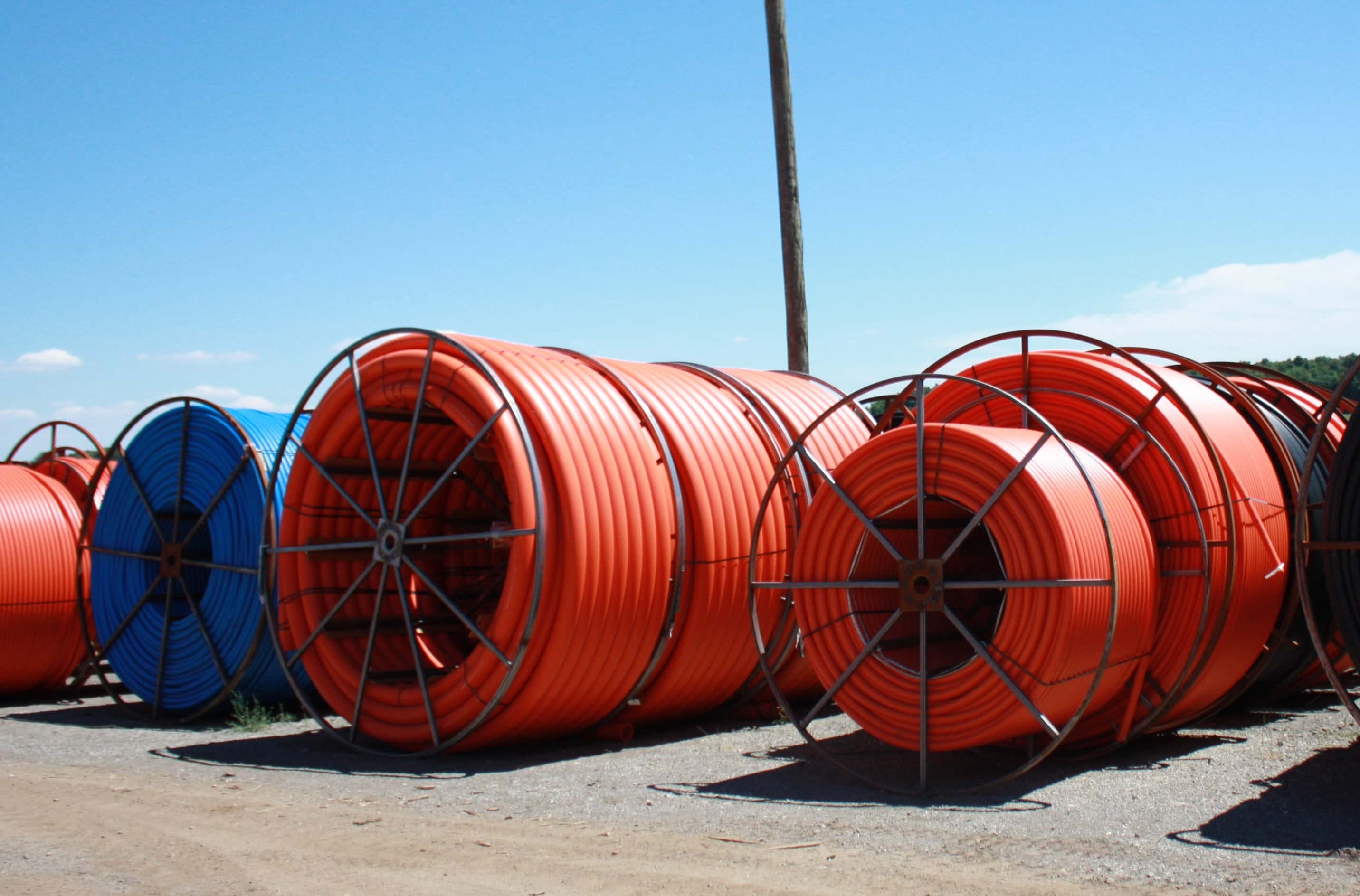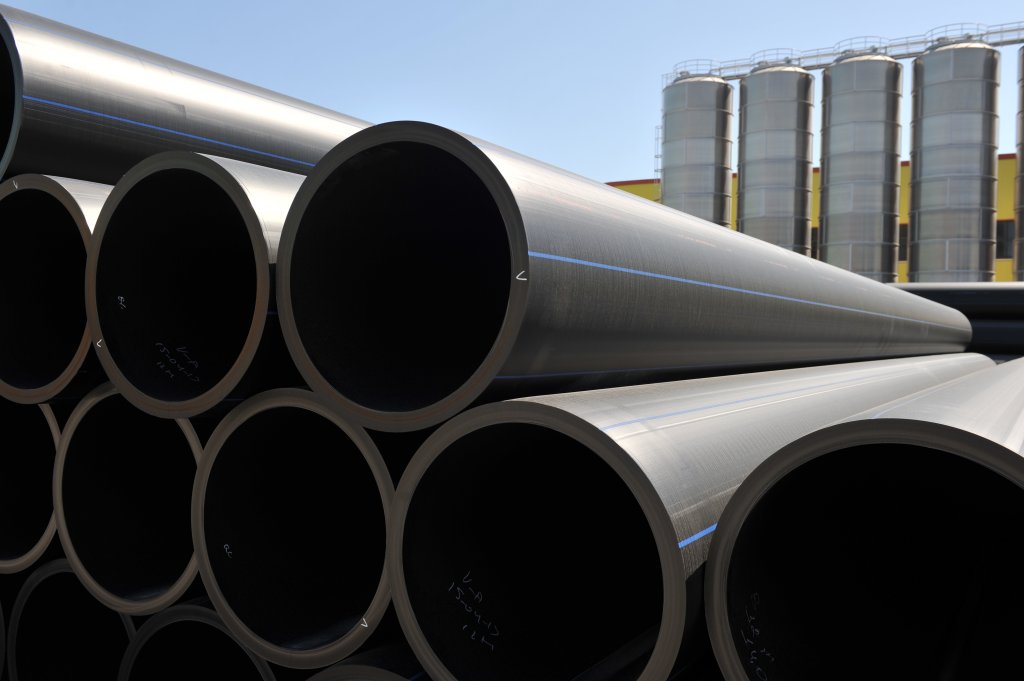American Plastics HDPE Pipe for Oilfield: Trusted by Engineers
Wiki Article
A Comprehensive Overview to the Numerous Uses of HDPE Pipeline in Construction and Sector
HDPE pipelines have become an essential part in modern-day building and construction and commercial applications. Their unique residential properties, such as resistance to rust and light-weight layout, make them suitable for a variety of usages. From water supply systems to farming irrigation, HDPE pipelines offer remedies that improve performance and sustainability. Understanding their varied applications is important for experts seeking to enhance facilities. What specific advantages do these pipelines bring to each industry?Water Supply and Distribution Systems
Water and circulation systems are important elements of city facilities, often relying upon high-density polyethylene (HDPE) pipes for their sturdiness and efficiency. These systems transport drinkable water from therapy facilities to customers, ensuring accessibility and safety and security. HDPE pipes are favored for their resistance to deterioration, chemicals, and extreme temperature levels, which improves their durability and decreases upkeep prices. Additionally, their lightweight nature enables less complicated installment and transportation, making them perfect for numerous city and rural applications.The adaptability of HDPE pipes enables them to be set up in limited rooms and around challenges, lessening the demand for considerable excavation (hdpe pipe in stock Midland TX). Their smooth interior surface area minimizes rubbing losses, enhancing water flow prices. As cities remain to grow, the need for dependable water systems boosts, positioning HDPE pipelines as a sustainable remedy for modern infrastructure jobs. Their tried and tested performance history makes them a preferred option among designers and metropolitan coordinators alike
Wastewater Monitoring and Treatment
Reliable wastewater monitoring and therapy are important for maintaining public wellness and ecological high quality. HDPE pipelines play a crucial function in this process as a result of their sturdiness, resistance to rust, and ability to endure rough chemicals. These pipelines are commonly used in different applications, consisting of sewer system, stormwater drain, and wastewater therapy facilities. Their light-weight nature promotes simpler installation and transport, reducing labor expenses and time.On top of that, HDPE pipes have a smooth indoor surface area that lessens friction loss, advertising effective flow rates. They are likewise much less susceptible to leakages and failures contrasted to traditional products, ensuring that impurities are contained efficiently. Additionally, their flexibility enables flexibility in various dirt problems, making them ideal for diverse ecological setups. As markets progressively focus on lasting methods, the usage of HDPE pipelines in wastewater management systems lines up with goals for lowering ecological influence and enhancing resource recovery.
Agricultural Irrigation Solutions
In farming settings, reliable irrigation remedies are necessary for optimizing plant yields and taking care of water sources. HDPE (High-Density Polyethylene) pipelines play an important duty in modern-day irrigation systems due to their resilience, flexibility, visit site and resistance to deterioration. Their ability to withstand high stress makes them excellent for both surface and subsurface watering applications, making certain consistent water circulation across fields.Farmers can use HDPE pipelines in drip watering systems, which provide water straight to plant roots, decreasing waste and promoting healthy growth. In addition, these pipes are light-weight and easy to set up, minimizing labor prices and setup time. Their long lifespan and reduced maintenance requirements additionally boost their allure in agricultural techniques.
Furthermore, HDPE pipelines are ecologically friendly, as they can be reused and do not seep harmful chemicals right into the dirt. This makes them a sustainable choice for farmers intending to adopt environment-friendly agricultural approaches while maximizing performance.
Industrial Applications and Procedures
Adaptability is a hallmark of HDPE pipelines, making them crucial in numerous commercial applications and procedures. These pipes are commonly used in chemical handling industries due to their exceptional resistance to a large range of corrosive materials. HDPE's lightweight nature, integrated with high tensile stamina, enables simple setup and lasting efficiency sought after settings.In the oil and gas sector, HDPE pipelines play an important duty in transporting hydrocarbons and gases, many thanks to their longevity and flexibility - Texas hdpe pipe manufacturer. Furthermore, they are used in mining procedures for the transportation of slurry and various other materials, where typical piping systems might fail
In addition, HDPE pipelines are progressively used in making facilities for supply of water lines and wastewater monitoring. Their capacity to endure severe temperature levels and stress makes them ideal for a variety of commercial procedures. In general, HDPE pipes contribute significantly to effectiveness and security across varied commercial applications.
Stormwater Management and Drainage Equipments
Stormwater monitoring and water drainage systems are crucial parts in city infrastructure, made to handle excess rains and reduce flooding see here now threats. High-density polyethylene (HDPE) pipes are increasingly used in these systems due to their sturdiness, flexibility, and resistance to rust. These pipes successfully move stormwater far from inhabited areas, reducing surface area runoff and stopping waterlogging.HDPE's light-weight nature facilitates easier installation, decreasing labor expenses and building time. Furthermore, its resistance to chemicals and ecological stressors assurances long life and dependability in numerous climates. In addition to conventional drain applications, HDPE pipelines are additionally employed in cutting-edge my blog remedies such as eco-friendly infrastructure, that includes rainfall gardens and permeable pavements.

Frequently Asked Inquiries
Exactly How Does HDPE Pipe Contrast to PVC Pipeline in Price?
As a whole, HDPE pipe has a tendency to be more pricey than PVC pipeline as a result of its improved longevity and flexibility. Long-lasting cost factors to consider, such as maintenance and life-span, might favor HDPE in specific applications.What Is the Life Expectancy of HDPE Piping Under Numerous Conditions?
HDPE pipelines usually have a life-span of 50 to 100 years, depending upon environmental conditions, installment methods, and use. Variables such as temperature level, dirt type, and exposure to chemicals can substantially affect their durability.Can HDPE Pipeline Be Recycled After Usage?
Yes, HDPE pipes can be recycled after use. The reusing procedure includes thawing down the product, permitting it to be repurposed right into brand-new items, thereby advertising sustainability and decreasing ecological influence connected with plastic waste.Are There Any Type Of Certain Installation Difficulties With HDPE Pipes?
Installment difficulties with HDPE pipelines include proper jointing techniques, making sure sufficient trench problems, and handling thermal development. Furthermore, skilled labor is called for to manage customized tools, which can complicate the installation process in different environments.
What Certifications Should I Search For When Acquiring HDPE Pipings?
When acquiring HDPE pipes, one ought to try to find accreditations such as ASTM, AASHTO, and ISO, which verify top quality and compliance with sector standards, assuring toughness and performance in numerous applications. - American Plastics HDPE Pipe ManufacturingReport this wiki page